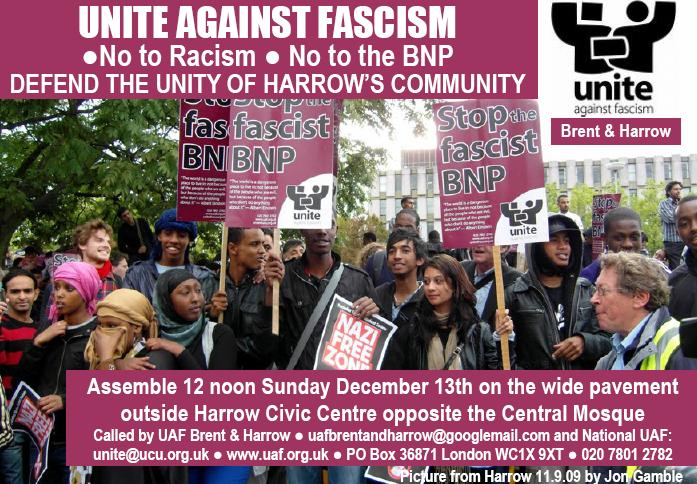Writing in the Daily Telegraph, Ed Balls responds to the Tories’ demand for a ban on Hizb ut-Tahrir, accusing them of feeding the anti-Muslim propaganda of the right-wing press and aiding the far right:
“… whatever the political and media pressure – politicians cannot and should not make organisations unlawful simply because they find their views offensive and deplorable without the necessary evidence. Nevertheless, David Cameron and Michael Gove continue to call for Hizb-ut-Tahir to be banned – without providing the evidence and ignoring the legal advice Ministers have received.
“Last week, they renewed this attack by making a series of allegations about two independent Muslim schools which they claimed had not been inspected by Ofsted and were in receipt of public money from the anti-terrorism budget, which was being used by Hizb-ut-Tahir to promote extremism.
“Even if these allegations were correct, it would have been reckless to raise these very serious and sensitive issues in the highly charged atmosphere of Prime Minister’s Questions. The fact that these allegations turned out to be false is deeply irresponsible. David Cameron was reduced to saying his wider point was right: that two schools with some alleged connections to Hizb-ut-Tahir had received some public money.
“Forget that both schools are properly registered and inspected. Forget the fact that in all Ofsted’s inspections, no evidence has been found that extremist or anti-semitic views are being taught. Forget that the only public funding these schools have received is from their local councils to provide free nursery places for local three and four year olds.
“Predictably David Cameron’s false allegations generated tabloid headlines such as: ‘Extremists benefit from state funding’ and ‘£113,000 aid to fanatics who want to kill us’. But at what price? Parents and children being told that ‘fanatics’ are teaching their children – presenting a propaganda victory for both extremists in the Muslim community as well as Islamaphobic and racist organisations on the far-right.
“We all know how difficult it is for a country like ours to tackle the extremist threat effectively. We have to be vigilant and investigate every potential threat. But we also have to be responsible and work with the law-abiding Muslim community. If we bandy around accusations regardless of the facts, and take action regardless of the evidence, we will just end up alienating the very communities we need to help us tackle extremism.”
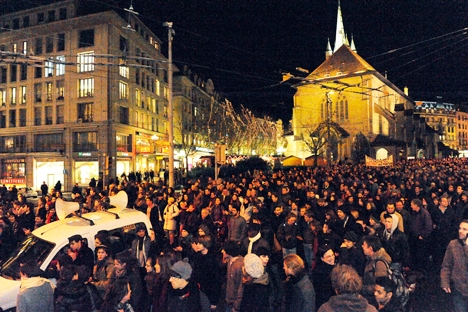

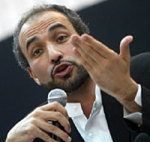 One of Europe’s leading Muslim scholars, Tariq Ramadan, told French lawmakers Wednesday they were failing to address the real problems facing French Muslims by debating whether to ban the burqa.
One of Europe’s leading Muslim scholars, Tariq Ramadan, told French lawmakers Wednesday they were failing to address the real problems facing French Muslims by debating whether to ban the burqa.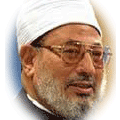 Qatar’s prominent Islamic scholar and chairman of the International Federation of Ulema (IFU) Sheikh Yusuf al-Qaradawi has urged the Muslims of Switzerland to seek the annulment of the ban on the construction of minarets on mosques in that country, according to reports published in the local Arabic press.
Qatar’s prominent Islamic scholar and chairman of the International Federation of Ulema (IFU) Sheikh Yusuf al-Qaradawi has urged the Muslims of Switzerland to seek the annulment of the ban on the construction of minarets on mosques in that country, according to reports published in the local Arabic press.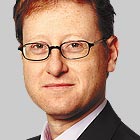 “It’s a crude reaction but it’s the first one I had on hearing that the Swiss had voted to ban the building of minarets on mosques – the same reaction I have to the increasingly-frequent stories like it: how would I feel if this were not about them, but us? How, in other words, would I react if this latest attack were not on Muslims but on Jews?
“It’s a crude reaction but it’s the first one I had on hearing that the Swiss had voted to ban the building of minarets on mosques – the same reaction I have to the increasingly-frequent stories like it: how would I feel if this were not about them, but us? How, in other words, would I react if this latest attack were not on Muslims but on Jews?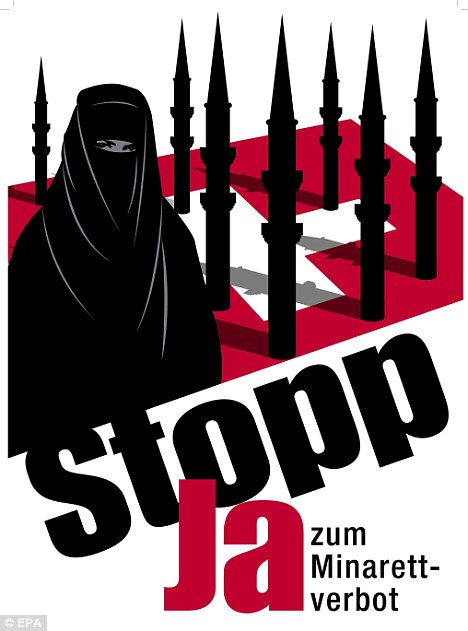 “Over the last two decades Islam has become connected to so many controversial debates – violence, extremism, freedom of speech, gender discrimination, forced marriage, to name a few – it is difficult for ordinary citizens to embrace this new Muslim presence as a positive factor. There is a great deal of fear and a palpable mistrust. Who are they? What do they want? And the questions are charged with further suspicion as the idea of Islam being an expansionist religion is intoned. Do these people want to Islamise our country?
“Over the last two decades Islam has become connected to so many controversial debates – violence, extremism, freedom of speech, gender discrimination, forced marriage, to name a few – it is difficult for ordinary citizens to embrace this new Muslim presence as a positive factor. There is a great deal of fear and a palpable mistrust. Who are they? What do they want? And the questions are charged with further suspicion as the idea of Islam being an expansionist religion is intoned. Do these people want to Islamise our country?